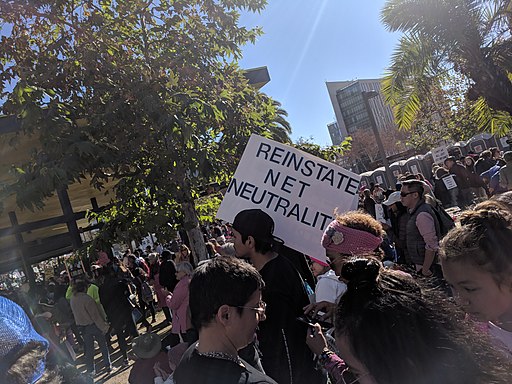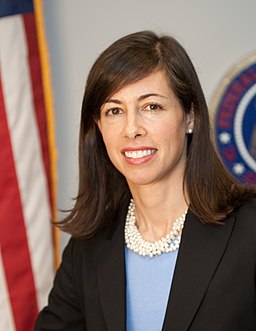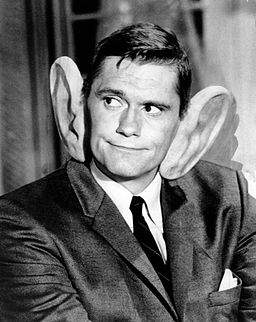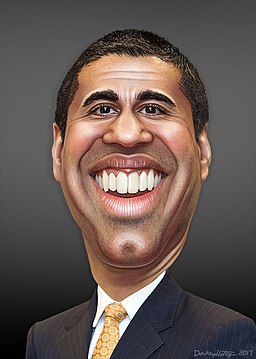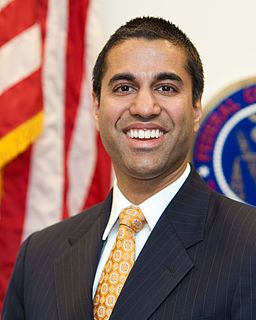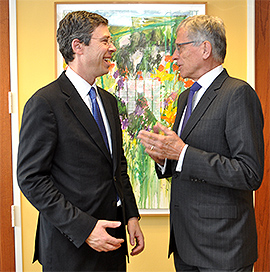Lead, Follow, or Get out of the Way
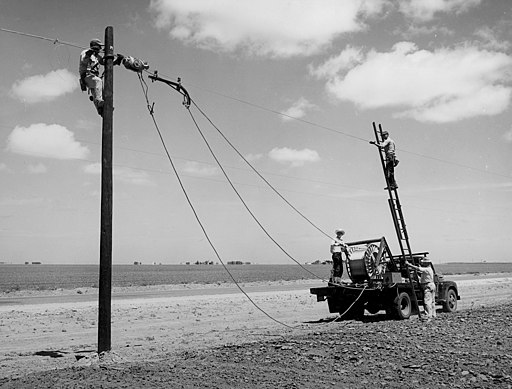
A United States Department of Agriculture (USDA) photo of a crew installing electric service lines in the countryside. The Rural Electrification Act of 1936 brought service to underserved areas through electric cooperatives owned by members, bypassing private utilities which saw little profit in the enterprise.
The Flintstones: “They’re the modern stone age family!”
Municipal governments and regional electric cooperatives are the only groups trying to ensure broadband service for poor and rural citizens, and trying to do it without price gouging. They get little help from federal and state governments, which often work either at cross purposes are try to undermine their efforts, again with the strings being pulled behind the scenes by Verizon, AT&T, Comcast, Charter, Sprint, and the rest of the big telecommunications companies. Naturally absolutely everyone says they are all for expanding broadband internet service at reasonable rates to poor and underserved areas – who wouldn’t come out in favor of that? – but the actions of many legislators, regulators, and company executives tell a different story. It would be best for citizens – customers – if everyone from the top down in government and private industry worked consistently and uniformly toward the one goal they all claim to be their mission, which is better serving the public, no matter who they are or where they live.
— Techly 


